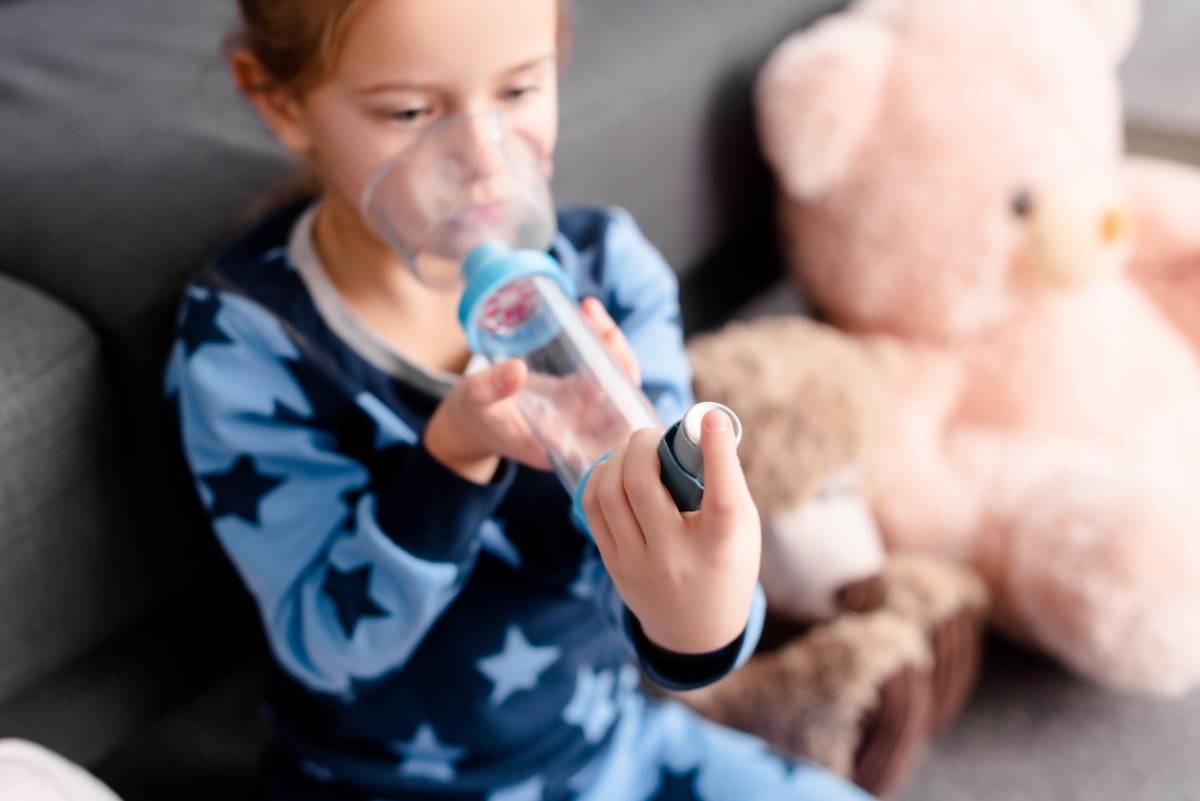Can infants have asthma? Most children with asthma show symptoms before their fifth birthday. In fact, it isn’t uncommon for susceptible children to experience asthma symptoms in infancy. Sadly, asthma can be very dangerous for infants and toddlers for several reasons.
- Nonverbal children are unable to clearly communicate the root of their distress
- Small children have smaller airways, so even a slight amount of swelling can be dangerous
- A small child’s triggers are not always immediately apparent
Can Infants Have Asthma?
That is why we will dedicate some time to discussing the nature of childhood asthma and common triggers that you can look out for. If you ever suspect that your infant or child has asthma, then it is imperative to contact your pediatric pulmonologist in New York City to begin the evaluation process. Having a treatment plan in place could literally save your child’s life.
What Is Asthma?
Asthma is a relatively common disease. We use the term to refer to a swelling of the airways in response to a specific stimuli like exercise or an allergen, for example. A stronger reaction will resort in more inflamed airways. Unfortunately, this swelling reduces the width of our airways, creating a smaller pathway for air to travel from the nose and mouth to our lungs.
Tight airways often created a vibration that becomes more of a whistling sound as the airways become increasingly closed off. These are signs of a serious reaction and should be immediately treated. Without medical intervention, the airways could close so much that the affected person cannot breathe. This cuts off their body’s access to oxygenated blood.
What Triggers Asthma?
Asthma can be triggered by many things. Some people have a genetic predisposition, but for many others, the triggers are environmental. Poor local air quality, exposure to cigarette smoke, and pet allergies are all relatively common triggers for asthmatics. However, when it comes to childhood asthma, there does appear to be a correlation between early respiratory infections and the development of asthma.
How Is Asthma Diagnosed?
A doctor cannot always witness your child’s asthma symptoms in action, so your pediatric pulmonologist on Staten Island will lean on the parents for an accurate medical history. In order to protect your child from a more dangerous respiratory attack, it’s important that you describe your child’s symptoms as well as you possibly can. Note whether their breath is noisy or if they seem to have an increased respiratory rate. You should also look for lethargy, difficulty feeding, coughing, and any noticeable changes to the sounds they normally make.
Your pediatric pulmonologist will also listen to your child’s lungs. Also, they measure their respiratory rate to look for hints of abnormalities. That said, you, the parent remain their ultimate ally in making sure your child receives the proper diagnosis before they have a serious episode. If your child is ever showing serious asthma symptoms, including but not limited to a seriously increased respiratory rate or bluing around the lips, then call emergency medical services.
How Is Asthma Treated?
For very small children, a nebulizer is usually the best delivery system for their medication. The machine turns their medication into a mist, allowing them to inhale it normally through a mask. Your child’s medication will depend on the nature of their asthma. Of course, nebulizers are quite a bit larger than an emergency inhaler. So your pediatric pulmonologist will transfer your child to an emergency inhaler. That is, once they’re old enough to reliably inhale their medication properly.
The good news is that the vast majority of asthma cases are highly treatable. As long as you have their medication on hand, you’ll be able to respond to episodes long before they become life-threatening. In fact, many children with asthma experience decreased symptoms as they mature, making them even safer.

